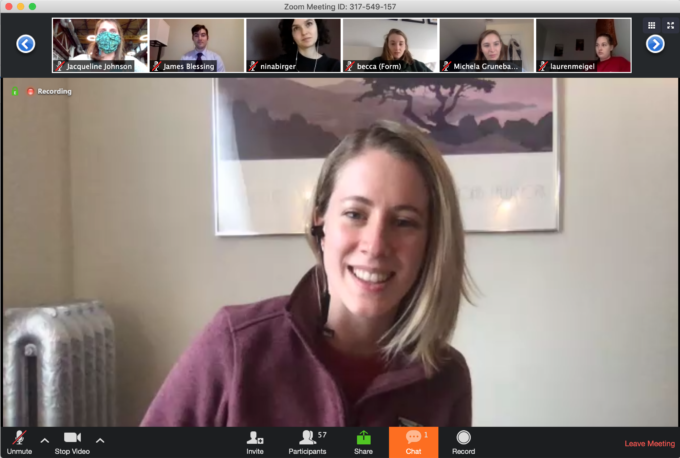During these challenging times, employees are looking to their managers for strong leadership more than ever. But how can startup managers deliver in this area when they are dealing with unprecedented uncertainty themselves?
According to three human resources experts, one answer is building a culture of psychological safety. Startups that constantly cultivate this culture are more likely to foster an environment where employees are happy and comfortable to share the ideas, questions, and concerns that ultimately make a company strong.
Greentown members Sheri Palazzo, Vice President of Engineering at Altaeros, and Lydia Bowers, People and Culture Lead at Spyce, shared with fellow members how they define psychological safety and how they think about cultivating it. The panel was moderated by Anna Asphar, Principal at A3 HR Consulting, who often works with the Greentown team and community.
Bowers described psychological safety as an “environment where everybody feels confident voicing their thoughts, ideas, questions, concerns, and opinions.” This type of comfort lowers people’s thresholds for being willing to speak up and share what’s on their minds.
Psychological safety needs to be built continuously, proactively, and intentionally, according to the three panelists. Managers can do this by listening intently—given that this is challenging for many people, the speakers recommended not thinking about your response while someone else is speaking—and by not punishing mistakes.
It’s also key for leaders to be vulnerable themselves, the speakers said. While some people worry about being viewed as weak if they admit vulnerability, the speakers say employees see it as a sign of strength.
“It’s important to admit that you don’t know everything, that we make mistakes, that we’re human, that these things are going to happen,” Asphar said. “A lot of the issues that I’ve seen come up in companies that are having trouble with turnover or aren’t working well together come down to either one person or one team having trouble with that.”
The panelists also discussed how leaders can navigate tough conversations while still maintaining a psychologically safe atmosphere. They recommended practicing ahead of time, thinking deeply about how the conversation can be tangibly useful for both parties, and speaking genuinely.
“Be as authentic as possible,” Palazzo explained. “I will literally say, ‘I’m conflicted. What I’m going to do in this conversation is I’m going to wear different hats. As a manager, here’s what I want to tell you. As your friend, this sucks, and here are my feelings. As your mentor, if you’re open to it, here’s some advice I have around this.’”
The panelists advised saying what you need to up front, without a lot of details, and then asking whether the person wants more information or has questions. If they’re not ready to discuss further, offer to have a follow-up conversation.
While Bowers and Palazzo’s companies are working remotely due to COVID-19, they’re making sure to check in with their employees on a personal level—and they’re sure to bring their own emotions to the table as well.
“Historically emotions haven’t been appropriate in work, or at least in certain work cultures, and so a big push for me personally and as a company has been to incorporate more emotion-based questions,” Bowers said. “We’re all still working, and we’re all still working really hard, but there’s a lot going on, and it’s OK to talk about it and it’s OK to acknowledge that it’s having an impact.”
This panel is part of Greentown Labs’ commitment to support startups as they navigate the impacts of COVID-19. To learn more about these efforts, follow us on Twitter or check out our blog.


